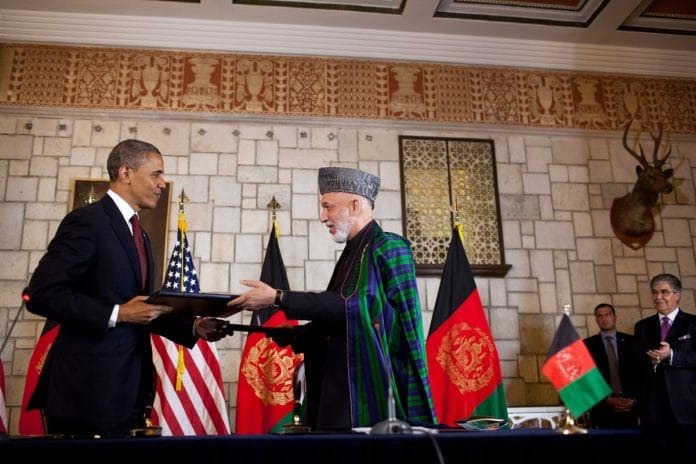The US had trapped itself in its alliance with Pakistan. It was unable to find a strategy to persuade Pakistan’s generals to change their calculus toward India.
The 17-year, American-led war in Afghanistan has been undone by many errors and illusions. But none has been more important than Washington’s failure to prevent Pakistan and its Inter-Services Intelligence agency from succouring the Taliban’s revival, particularly after 2005.
America failed to anticipate ISI’s planning. And then, towards the end of the Bush administration, when the National Security Council did realise that the ISI was actively promoting a Taliban, it could not identify a strategy of either friendship or coercion that would persuade it to change course. The struggle to alter Pakistan’s calculus persisted across the entire eight years of the Obama administration.
This failure not only cost American soldiers fighting in Afghanistan their lives, it also thoroughly confused some of Washington’s most important allies in South Asia. One of these was Hamid Karzai, the Afghan President.
Karzai took it for granted that the US, as the world’s supreme military superpower, could force ISI to stop aiding the Taliban if it really wanted to. And since the US did not take this action, it raised the question of why. For many years, Karzai urged virtually every American who met with him in private to do more to pressure Pakistan.
Barack Obama visited Afghanistan for the first time in the summer of 2008, in the midst of his campaign for the presidency. At a meeting with Karzai and his cabinet in Kabul, the Afghans told Obama one by one that ISI was “the source of increasing instability in Afghanistan”.
Karzai’s remedy included “US military operations in Pakistan”.
Obama asked if Pakistan’s civilian leaders could curb the ISI. “Not without the help of the United States,” Karzai said. “The problem is ISI,” he repeated, “which runs the country.”
When, even after the outrage of the Mumbai terrorist attack, as the years passed and still Washington failed to change Pakistan’s calculus, Karzai sunk into conspiracy thinking. He concluded that the US was secretly conspiring with Pakistan to destabilise the region, so as to have a reason to maintain military bases in Afghanistan.
Karzai’s hypothesis frustrated American negotiators, but they could not move him off his conviction.
In 2013, America’s special envoy to Afghanistan and Pakistan, James Dobbin, met Karzai at Kabul’s Arg Palace. “Mr President, between Edward Snowden and WikiLeaks, you have several million documents to examine – can you find any mention of such designs? Do you really think I would lie to you about this?” Dobbins recalled asking.
“Maybe you don’t know about the plan,” Karzai replied. He referred to there being a “deep state” in America.
“Mr President, there is no deep state,” Dobbins insisted.
The truth was more prosaic. The United States had trapped itself in its alliance with Pakistan. It was too concerned about destabilising the nuclear-armed country to put maximum pressure, and unable to identify a strategy of aid and friendship that would persuade Pakistan’s generals to change their strategic calculus toward India.
President Donald Trump has now suspended US aid to Pakistan, and he has tweeted with hostility about the country. However, Pakistan is now nesting ever deeper in its historical “all-weather” alliance with China, and the record of using economic sanctions to change its conduct is a dismal one.
Steve Coll is the author of the new book titled ‘Directorate S: The C.I.A. and America’s Secret Wars in Afghanistan, 2001-2016’. He is the Pulitzer Prize-winning author of ‘Ghost Wars: The Secret History of the CIA, Afghanistan, and Bin Laden, from the Soviet Invasion to September 10, 2001’. He is Dean, Graduate School of Journalism, Columbia University, and former managing editor of The Washington Post.







Because 0bama DIDN’T WANT to “escape the trap” — as evidenced by his engineering of Muslim Brotherhood misgovernment on Egypt (which Egypt’s military under Sisi set right) and his support for the coup against legitimate Ivoirian president Laurent Gbagbo byf ILLEGITIMATE (as per Ivoirian constitution, due to his parents being from Burkina Faso) Al Hassan Ouattara — but to actually usher-in a caliphate, of which he hoped to be caliph!